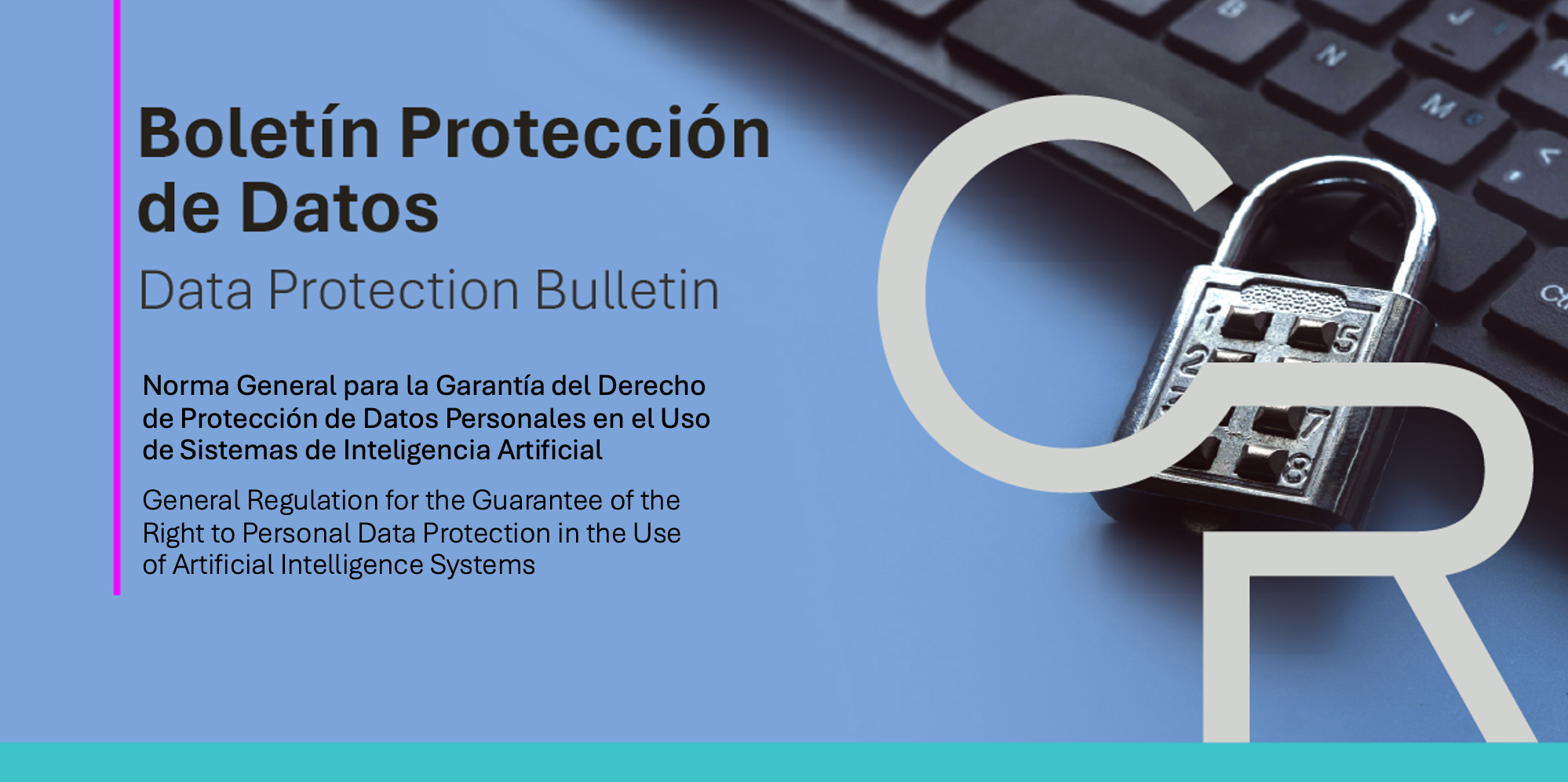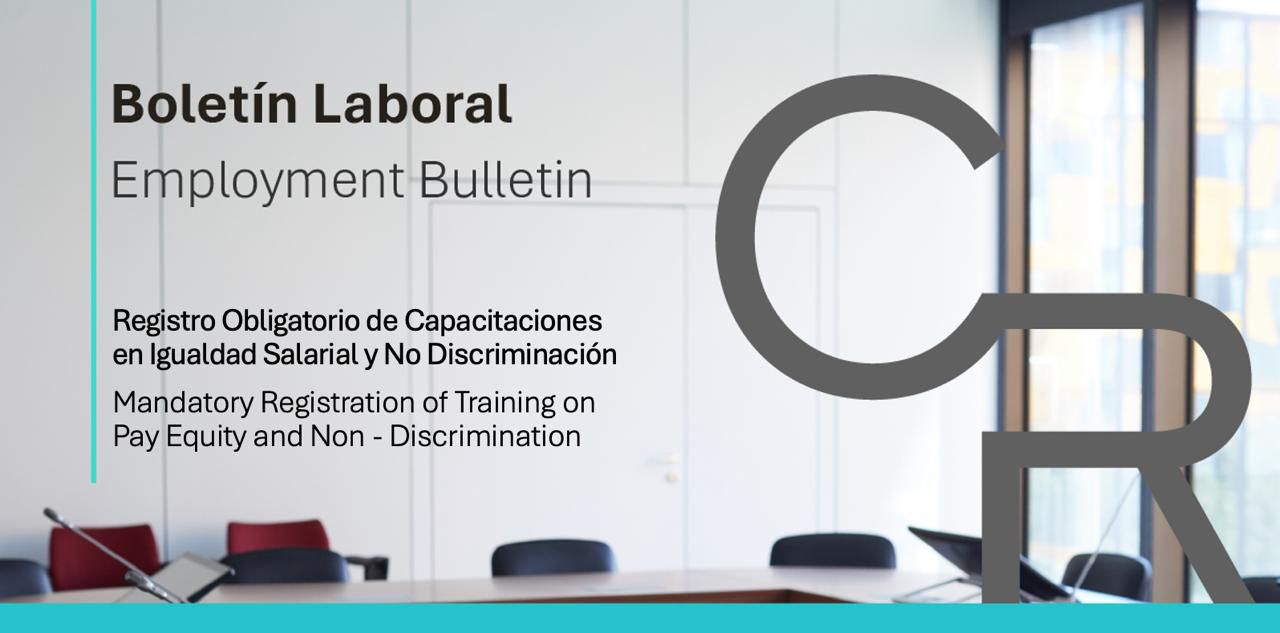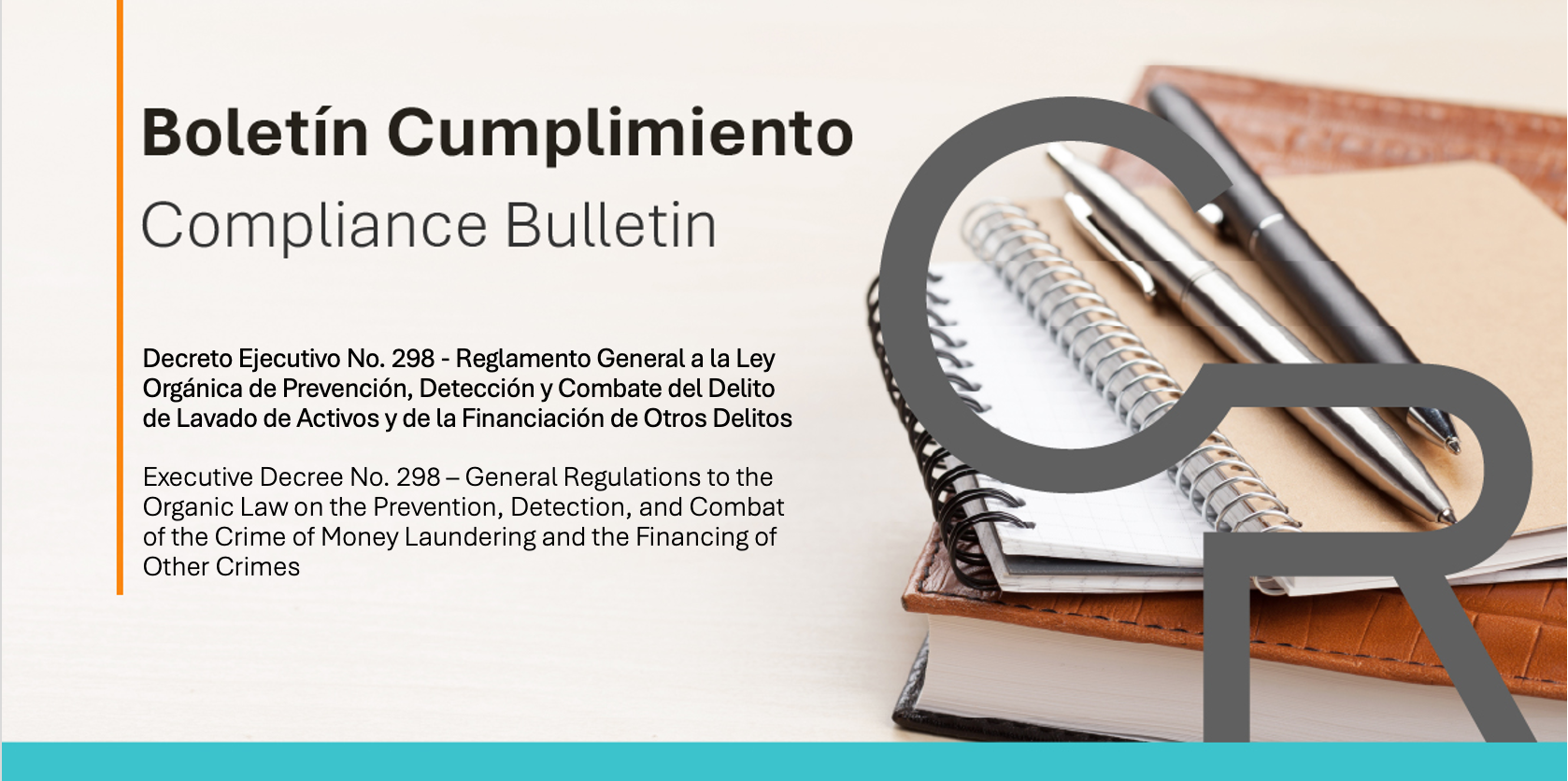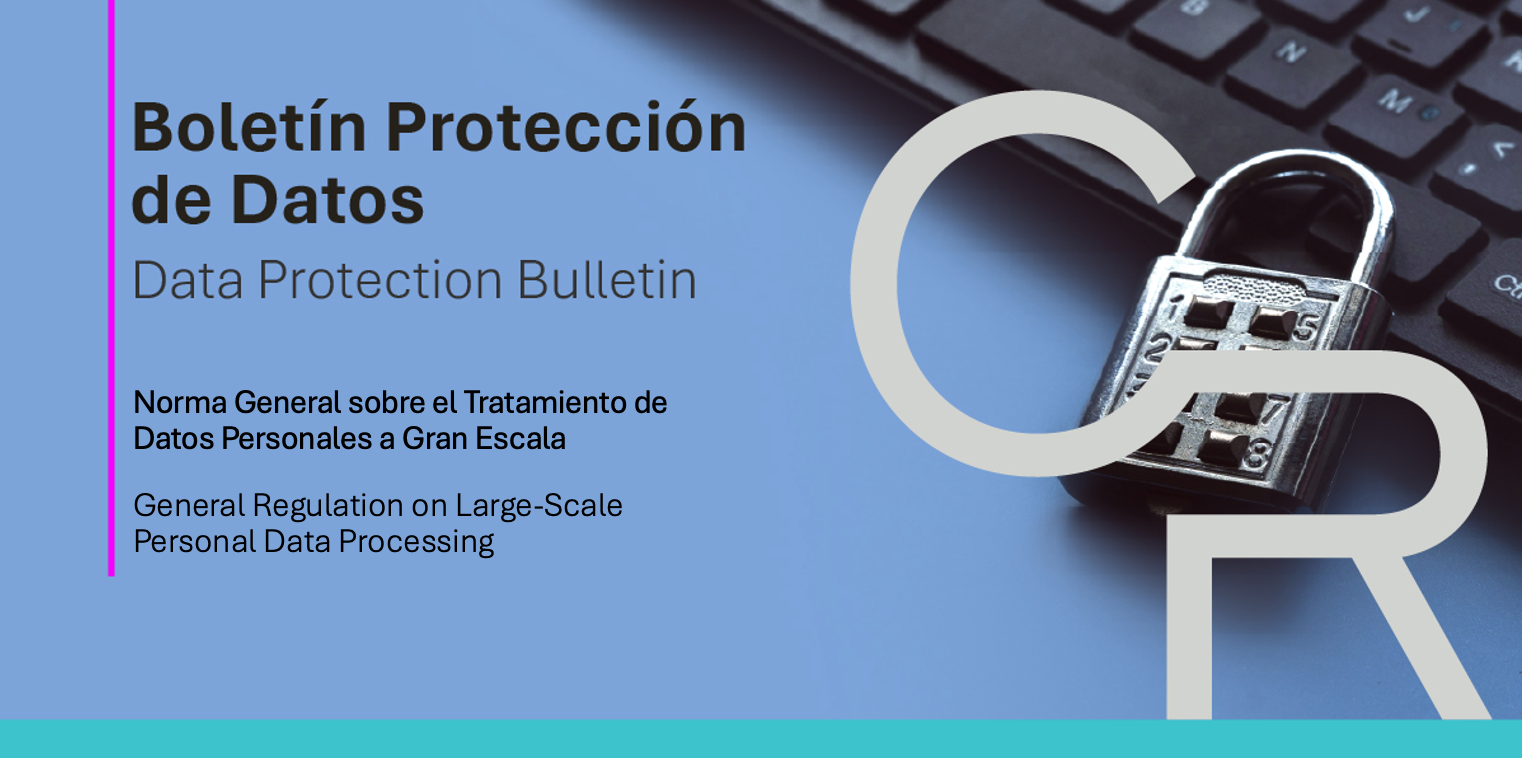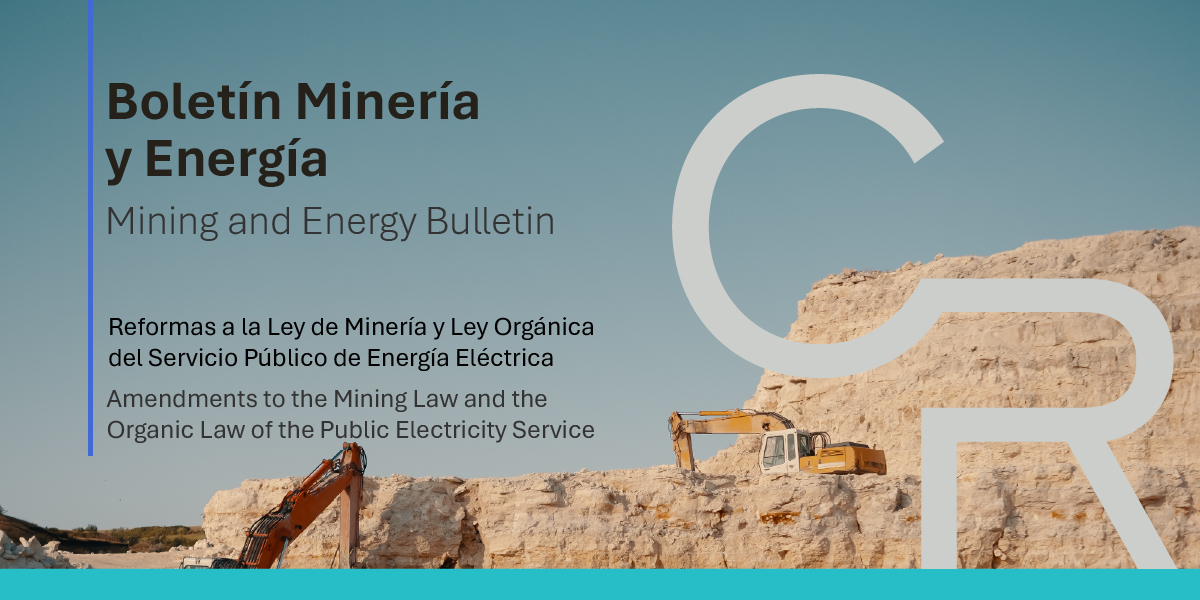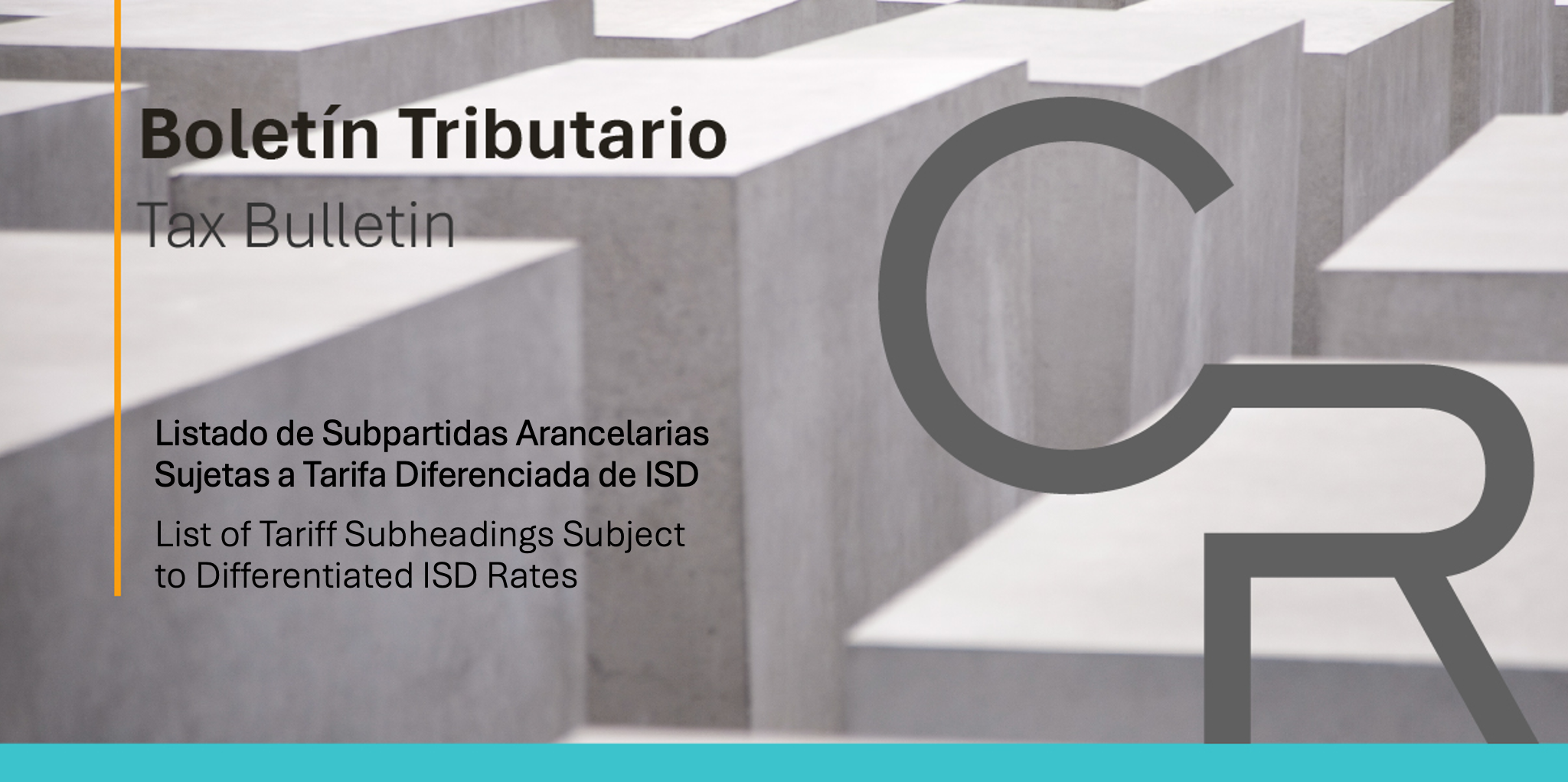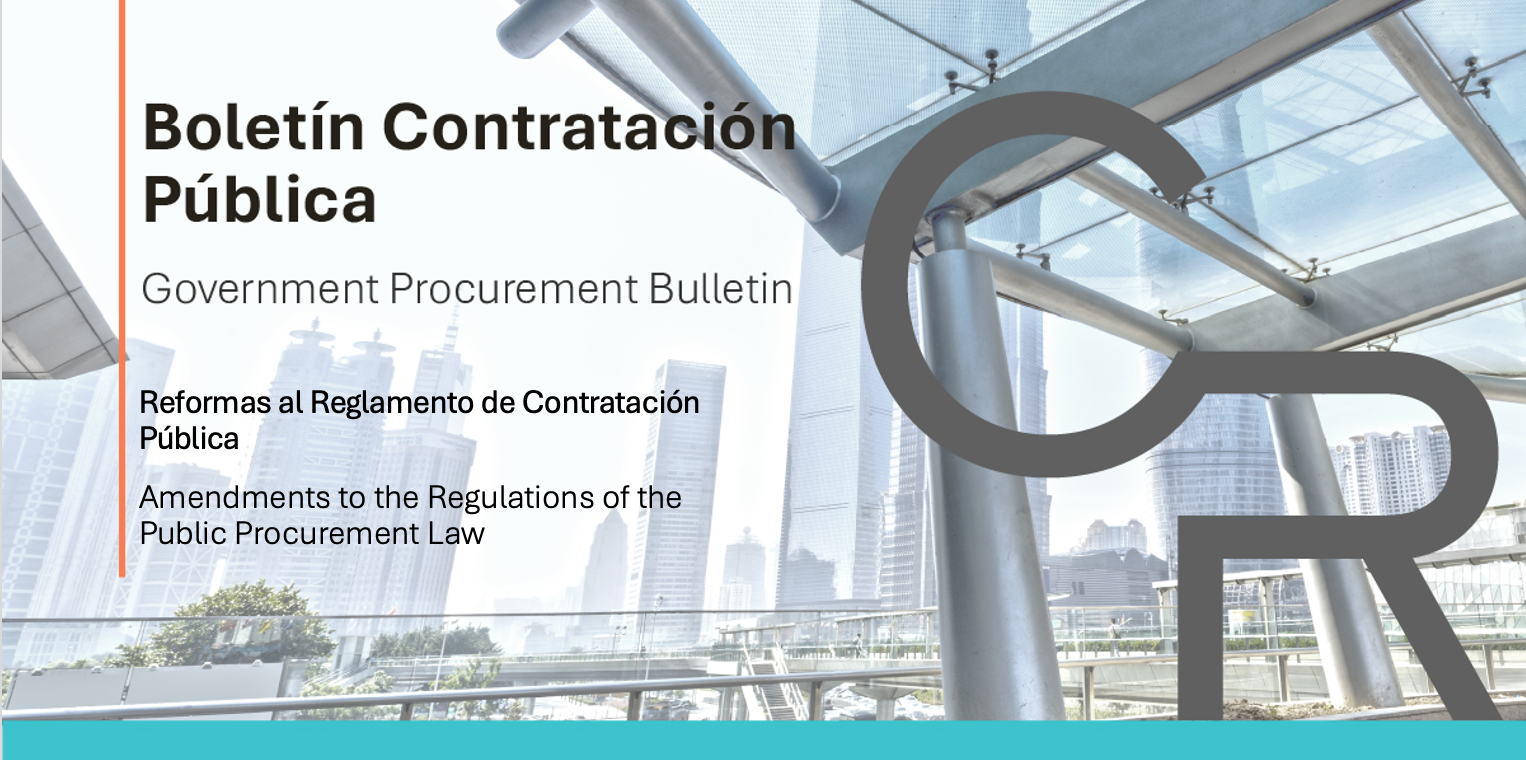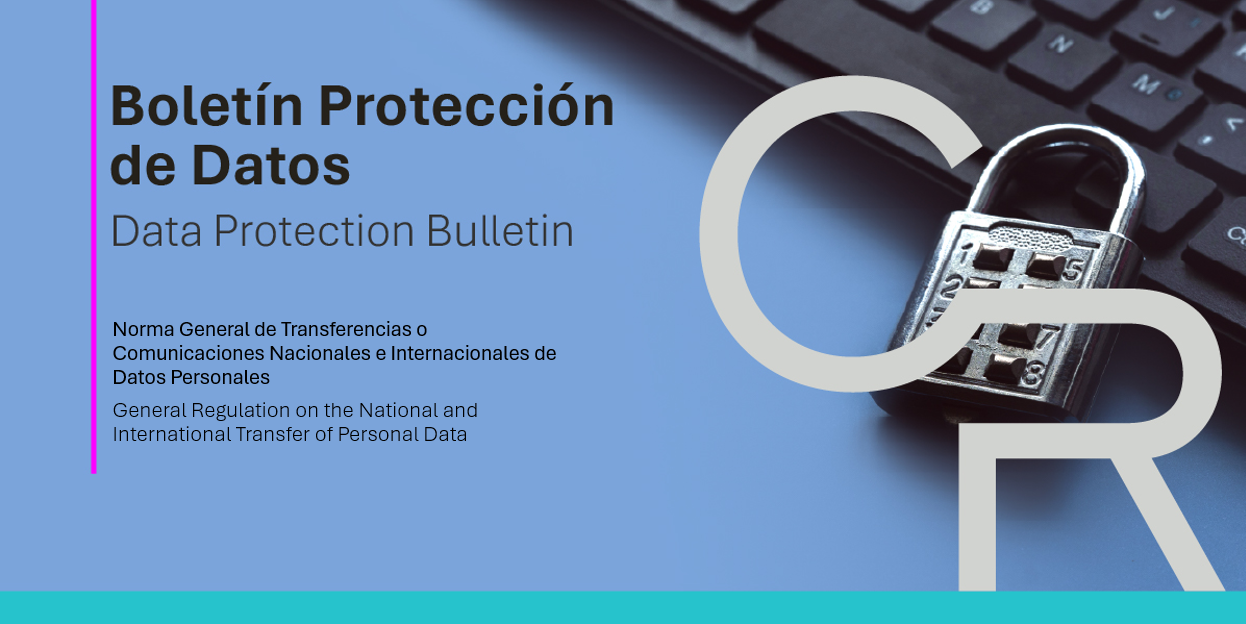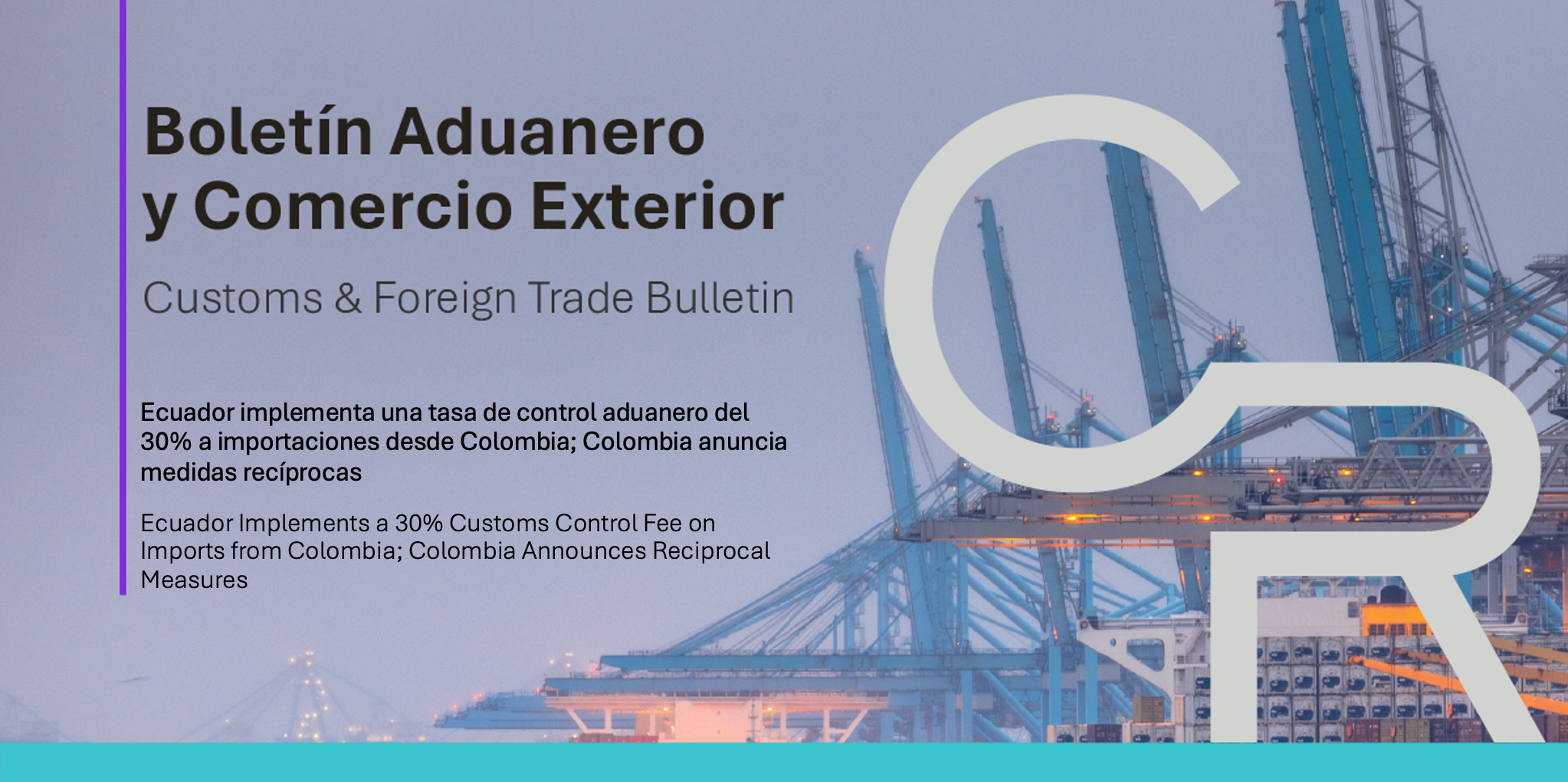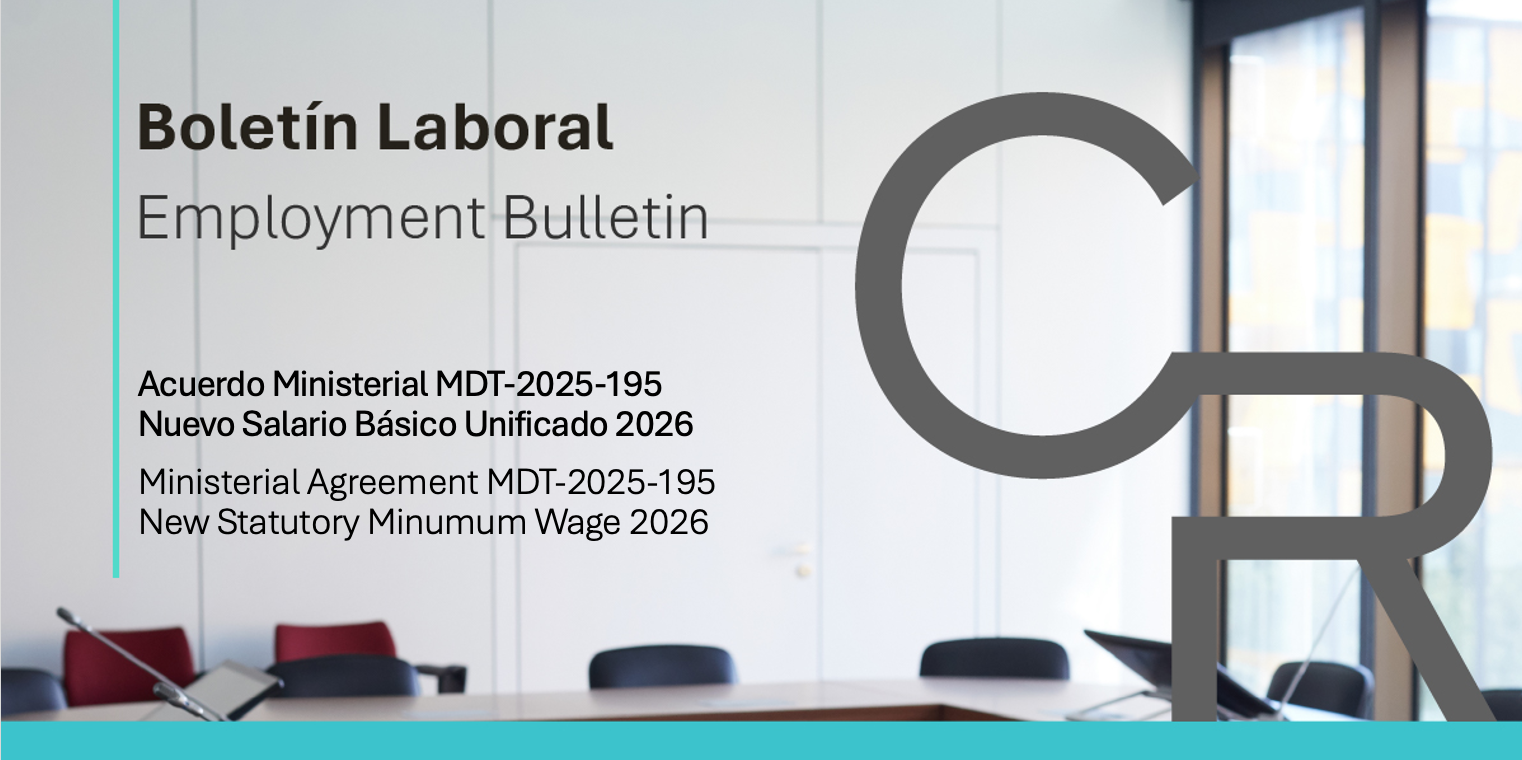On January 28, 2026, the President of the Republic submitted to the National Assembly an urgent bill titled the “Organic Law for the Strengthening of the Strategic Mining and Energy Sectors” (the “Bill”). The purpose of this Bill is to amend the Mining Law and the Organic Law of the Public Electricity Service (“LOSPEE”).
Although the Bill was qualified by the Legislative Administration Council (“CAL”) and referred to the Economic Development Commission of the National Assembly on Sunday, February 1, where the proposed text will be discussed for its eventual approval, the most relevant changes are summarized below:
Amendments to the Mining Law
Prior Administrative Acts
Currently, holders of mining concessions must obtain so-called prior administrative acts before carrying out activities, namely: (i) the relevant environmental license from the Ministry of the Environment; (ii) a certificate from the Single Water Authority confirming that activities will not affect water sources; and (iii) a sworn statement that the activities will not affect public infrastructure.
The Bill seeks to clarify the first requirement by establishing that concessionaires must obtain (i) the corresponding environmental authorization from the Competent Environmental Authority, in accordance with the applicable regime and phase. It is noteworthy that, depending on the mining stage and phase, the requirement to obtain either an environmental registry or an environmental license may vary.
Mining Conservation Patent Fee
Each year, until March, holders of mining concessions must pay an annual patent fee for each mining hectare they hold. This fee is calculated based on the Unified Basic Salary (“SBU”): 2.5% of the SBU for initial exploration, 5% of the SBU for advanced exploration and economic evaluation, and 10% of the SBU for the exploitation stage.
The Bill provides that, under no circumstances, whether through administrative or judicial channels, may an extension be granted for payment of this patent fee. Additionally, it establishes that from the granting of the concession until December 31 of the fourth year of exploration, the fee will be equivalent to 2.5% of the SBU; for the following exploration years, 5% of the SBU; and 10% of the SBU for the exploitation stage.
Phases of Mining Activity
Currently, a mining concession is divided into an exploration stage and an exploitation stage, with the exploration stage further subdivided into initial exploration, advanced exploration, and economic evaluation of the deposit.
The Bill modifies these phases, establishing that a mining concession will be divided into an exploration stage and an exploitation stage, which will include primary, secondary, and other minerals of economic value.
Exploration Phase of the Mining Concession
Article 37 of the Mining Law provides that the holder of a mining concession may carry out mining exploration activities, with an initial exploration period of four years, advanced exploration of four years, and economic evaluation of two years, before entering the exploitation phase.
The Bill amends the exploration stage to a maximum term of 15 years from the date of grant, divided into the following sub-phases: (i) initial exploration of up to four years, and (ii) advanced exploration and economic evaluation with a combined duration of up to eleven years. Transition between sub-phases will occur automatically upon the lapse of time and compliance with the term established for each, without the need for prior authorization.
It is clarified that the exploration stage is intended for the manual collection of rock, soil, and fluvial sediment samples; data gathering through geophysical methods; opening of paths, trenches, and exploratory pits; test or reconnaissance drilling; and other activities permitted under current regulations. This includes the installation of temporary camps and necessary infrastructure for carrying out exploration work within a mining concession, as well as the economic evaluation of the concession.
Creation of Mining Clusters
The Bill establishes that the State, through the Sectoral Ministry as governing authority — the Ministry of Environment and Energy — may implement Integrated Mining Clusters as defined territorial areas in which enabling infrastructure and shared services for mining projects are concentrated, coordinated, and operated. Integrated Mining Clusters may include: (a) electrical interconnection systems; (b) fuel supply infrastructure; (c) road and logistics infrastructure; and (d) explosives and related materials.
Promotion and Encouragement of Productive Investment
The Bill incorporates a new article aimed at promoting national and foreign productive investment, establishing that Executive Branch entities must:
- Promote investment through public-private coordination mechanisms, partnership models, strategic alliances, and other structures permitted under the legal framework;
- Implement administrative simplification, coordination, and facilitation processes aimed at reducing timeframes, duplication, and regulatory burdens, without undermining legal and environmental controls;
- Provide clear, timely, and transparent information regarding requirements, procedures, incentives, and conditions applicable to investment, ensuring access to institutional channels for investor support and guidance;
- Encourage technology transfer, innovation, development of local suppliers, and the generation of added value within the national territory; and,
- Promote responsible investment that respects human rights, nature, and communities, in accordance with applicable national and international standards.
However, it is clarified that these provisions do not create vested rights or automatic exemptions, and their application remains subject to compliance with the Constitution, laws, and applicable regulations.
Mining Areas with Strategic Security Protection
The Bill introduces a new article creating Mining Areas with Strategic Security Protection. These will be territorial areas where mining activities are carried out, which, due to their location, economic importance, strategic nature, associated infrastructure, or risks to national interest, will receive protection from the Armed Forces in coordination with other competent authorities, to
- Protect the integrity of personnel, facilities, mining infrastructure, and strategic assets associated with mining activities;
- Prevent, deter, and neutralize illegal activities affecting area security, including illegal mining, sabotage, illegal occupations, and other threats to State security; and,
- Support competent authorities in territorial control and preservation of order, in accordance with existing inter-institutional protocols.
Such protection does not replace the mining titleholder’s responsibilities regarding industrial, environmental, and occupational safety, nor does it imply delegation of private functions to public security forces.
Environmental Authorization for Activities
The Bill amends Article 78 of the Mining Law by establishing that, before the commencement of mining activities, the respective environmental authorization must be obtained in accordance with applicable environmental regulations. Under the special regime for small-scale and artisanal mining that conducts simultaneous exploration/exploitation activities, an environmental administrative authorization will be required. In the small-, medium-, and large-scale mining regimes, both the exploration and subsequent exploitation stages will require the respective environmental administrative authorizations for each phase, in accordance with the categorization established in the Unified Environmental Information System (SUIA).
Update of Environmental Information for Projects
The Bill adds a transitional provision to the Mining Law establishing that the National Environmental Authority must update, within a maximum period of three months from the entry into force of the new law, the catalog of projects, works, or activities related to the exploration phase and mining activity.
Amendments to the Organic Law of the Public Electricity Service
Name of Distributed Generation Systems for Self-Supply
The Bill modifies the designation of Distributed Generation Systems for Self-Supply (“SGDA”), establishing that these systems may use an energy resource through any type of technology for the self-supply of end users. Currently, SGDAs are exclusively intended to use non-conventional renewable energy resources.
Name of Autonomous Energy District (DAE)
The Bill authorizes a legal entity with private, mixed, or popular and solidarity economy capital, whose enabling title allows it to own an electricity network with its own generation – using any type of local and/or remote technology – for its supply, with autonomy in the management and development of its energy and electricity resources on an integrated basis, for the purpose of meeting its power and energy demand. Exceptionally, such entity may generate surpluses that may be made available to the national electricity system.
Name of Transmission Self-Supply Generation System
The Bill defines this concept as the set of equipment for the generation of electricity that uses an energy resource through any type of technology for the self-supply of end users and is connected to a transmission network.
Private Sector Participation in Power Generation
The Bill amends Article 25, whose first paragraph was recently declared unconstitutional by the relevant court, as follows: To satisfy the public, collective, or general interest, the State may exceptionally delegate to private capital companies, foreign state-owned companies, and popular and solidarity economy enterprises, participation in activities related to the public electricity service and public street lighting service, through public selection processes, in any of the following cases:
- For projects included in the Electricity Master Plan (PME):
- When the governing Ministry identifies delays of more than two years in the implementation of the Electricity Master Plan, or when the National Electricity Operator identifies, in the short, medium, or long term, conditions of energy deficit, risk of rationing, operational collapse, loss of reserve, or violation of safety and reliability criteria of the national electricity system or isolated and island systems.
- When, for technical or economic reasons, the service cannot be provided by public or mixed companies in accordance with system expansion and operation requirements, based on a reasoned report from the governing authority.
- When an emergency in the electricity sector has been declared by the governing authority, duly supported by technical reports from CENACE or the competent regulatory and control agency.
- When the participation of private companies, foreign state-owned companies, or popular and solidarity economy enterprises makes it possible to obtain economic, financial, or risk management conditions demonstrably more favorable to the public than those the State could achieve with its own resources.
- For public electricity or public lighting service projects not included in the PME:
- When, for justified technical reasons or relevant technological changes identified by the governing authority or the National Electricity Operator, projects are required to support the objectives of the Electricity Master Plan and cannot be executed promptly by public or mixed companies for technical or economic reasons.
- When private initiative, based on technological innovation, proposes projects using technologies proven worldwide that have not previously been developed in the country and that contribute to achieving the objectives of the Electricity Master Plan.
Additionally, the State, through the sectoral ministry, may delegate to private capital companies, foreign state-owned companies, and popular and solidarity economy enterprises the development of projects that use non-conventional renewable energy, transition energy, self-generation with any type of technology, autonomous energy districts, as well as the transmission and/or distribution systems necessary for their integration, even if such projects are not included in the Electricity Master Plan, subject to compliance with the requirements established in the relevant regulations issued by the sectoral ministry.
Additional Rules on Private Participation
The Bill adds Article 25.1, establishing that the exceptional nature of power generation by private capital companies, foreign state-owned companies, and popular and solidarity economy enterprises in any of the cases described in Article 25 must be supported by technical, economic, and legal studies objectively and verifiably demonstrating the existence of the exceptional circumstances invoked.
In all cases of delegation, the State shall retain leadership, planning, regulation, control, and oversight of the electricity sector, in accordance with the Constitution of the Republic. It is further clarified that delegation does not, under any circumstances, imply the transfer of ownership of the public service or the State’s waiver of its regulatory and supervisory powers.
The governing Ministry of Energy and Electricity will establish annually and progressively the limit for the entry of electricity generation projects, expressed in MW of capacity, by technology, in accordance with the availability, capacity, and operational conditions of the system.
In addition, concession contracts, depending on the technology involved, will have a maximum term of 30 years from the date of commencement of commercial operation. This term may be renegotiated only once, on an exceptional basis.
Expiration of the Enabling Title
Upon expiration of the enabling title, all assets allocated to the public service must revert and be transferred to the Ecuadorian State. Currently, assets installed by the end user for self-supply, self-generators, co-generators, and non-conventional renewable energy generators of up to 10 MW are excluded from this reversion obligation.
The Bill limits this exclusion to “private-initiative assets corresponding to projects that are not part of the Electricity Master Plan.”
Self-Generation
The Bill adds a paragraph to Article 41 on self-generation, establishing that enabling titles, concession contracts, and/or oil or mining exploitation contracts connected to the National Interconnected System (S.N.I.) must include clauses on local or remote self-generation or self-supply.
In the case of self-supply, the percentage of demand coverage will be defined by the governing authority in the corresponding enabling title or mining or oil concession and/or exploitation contract.
Economic Dispatch
The Bill adds a paragraph to Article 48 requiring dispatch to be ordered according to the following rules:
Preferential dispatch for non-conventional renewable generation of up to 10 MW.
Minimum dispatch of a percentage of the effective capacity of generation plants using transition energy sources. The minimum percentage of effective capacity to be dispatched will be defined in the regulations of the LOSPEE.
Self-Supply Systems for End Users
Currently, regulated and non-regulated consumers may install distributed generation systems exclusively for self-supply using Non-Conventional Renewable Energy (“ERNC”). The Bill eliminates the exclusivity requirement for NCRE and establishes that such systems must be connected to the distribution or transmission network.



© CORRALROSALES 2026
NOTA: EL texto anterior ha sido elaborado con fines informativos. CorralRosales no es responsable de ninguna pérdida o daño ocasionado como consecuencia de haberse actuado o dejado de actuar en base a la información contenida en este documento. Cualquier situación determinada adicional requiere la opinión y concepto específico de la firma.
CORRALROSALES


